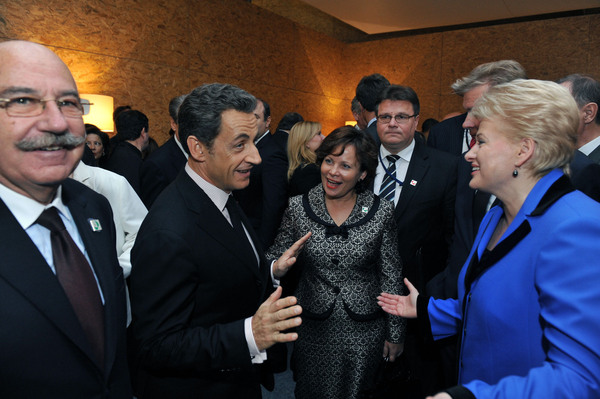The first head of the civilian chain of command to report

Kees Klompenhouwer, the new
and first Director of "civilian planning and conduct capability" (CCPC)
came to present to the Political and Security Committee (PSC), on 14 May, the new organization of the EU civilian command.
A real civilian staff
We must not be fooled by the apparently innocuous terms of the function. This integrated chain of command is neither more nor less a European headquarters managing all the missions "
civilians” of the Union (a General Staff). And its director, the first to occupy this position in its new configuration, is a real chief of staff made up of around sixty people. Finally, when
we speak of “civilian” EU missions, it would be more accurate to speak of a crisis management mission.
What is a civilian defense mission?
Within the meaning of the European Security and Defense Policy (ESDP), a "civilian" mission is indeed a mission which does not have a specifically military aim but whose objective remains to provide
security in the country concerned: by training, restructuring, assisting the existing forces which constitute for a State the very essence of its sovereignty (police, justice, customs, army,
borders).
This in no way means that the military are excluded (example in Kosovo or Guinea), that the use of weapons is prohibited (in Kosovo, a reserve force of 500 mobile gendarmes and
carabinieri should be deployed) or that their implantation takes place in pacified or peaceful territories. The EU thus has around ten "civilian" security missions in Europe, Africa,
Asia and the Middle East, of different types: border surveillance (Rafah-Palestine, Moldova-Ukraine), training and reinforcement of the police (Afghanistan, Bosnia, Congo, Palestine), reform
security forces (Congo, Guinea), strengthening of the rule of law (Iraq and Kosovo).
What does the director of the CPCC - the civilian chief of staff do?
Under the political control and strategic direction of the COPS and the High Representative, the Director of the CCPC assumes command of all Union civilian operations at the strategic level.
(except Eubam Moldova-Ukraine). In this capacity, he gives “instructions” to the head of mission, to whom he “also provides advice and technical support”. He has direct authority over
all ongoing civilian operations, in conjunction with the PSC. And all heads of mission must refer to him. It has a “general mission to ensure that the duty of vigilance
of the EU is filled in correctly" and to the adequate and effective implementation of the decisions of the Council and the PSC.
The "chef" in a nutshell
Dutch (and French), born in 1954, Klompenhouwer is an experienced diplomat (27 years of career), Balkan specialist. Defense Counselor at the Permanent Representation of the Netherlands in
NATO then ambassador in Belgrade (1999-2002), he was until now director of Eastern and South-Eastern Europe at the Ministry of Foreign Affairs in The Hague. Official Biography: download here
(Article published in Europolitics)

